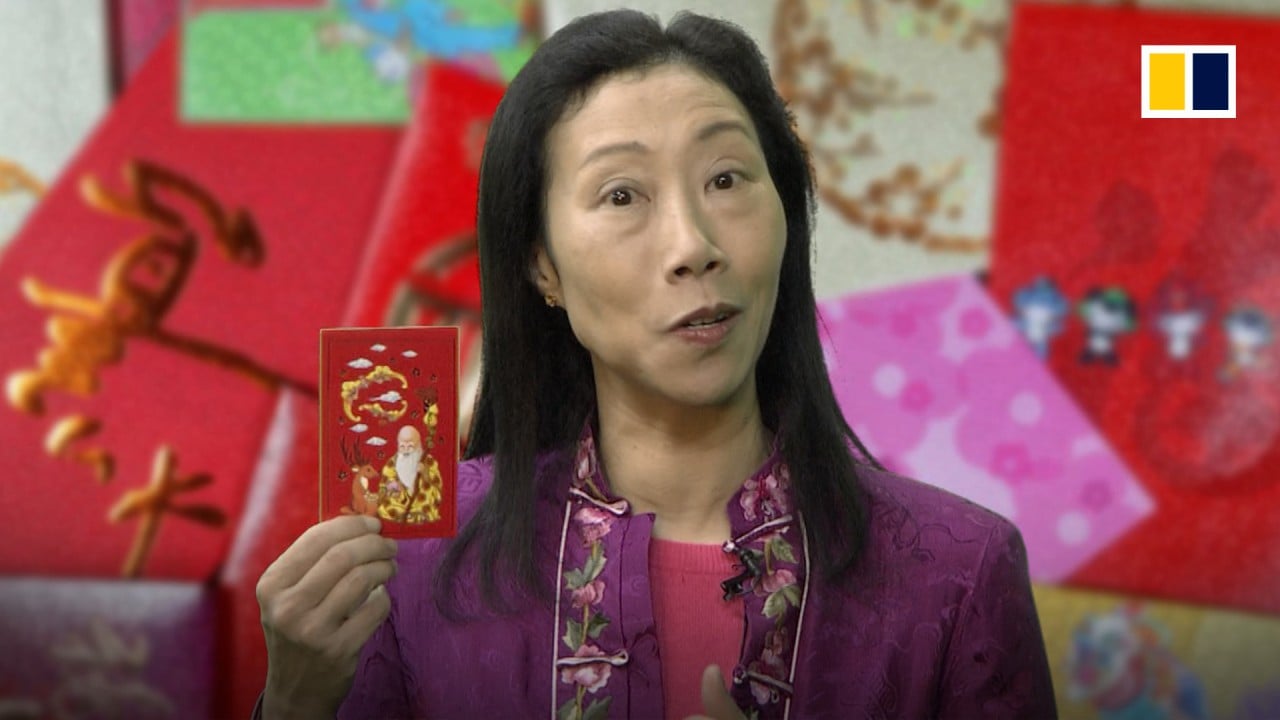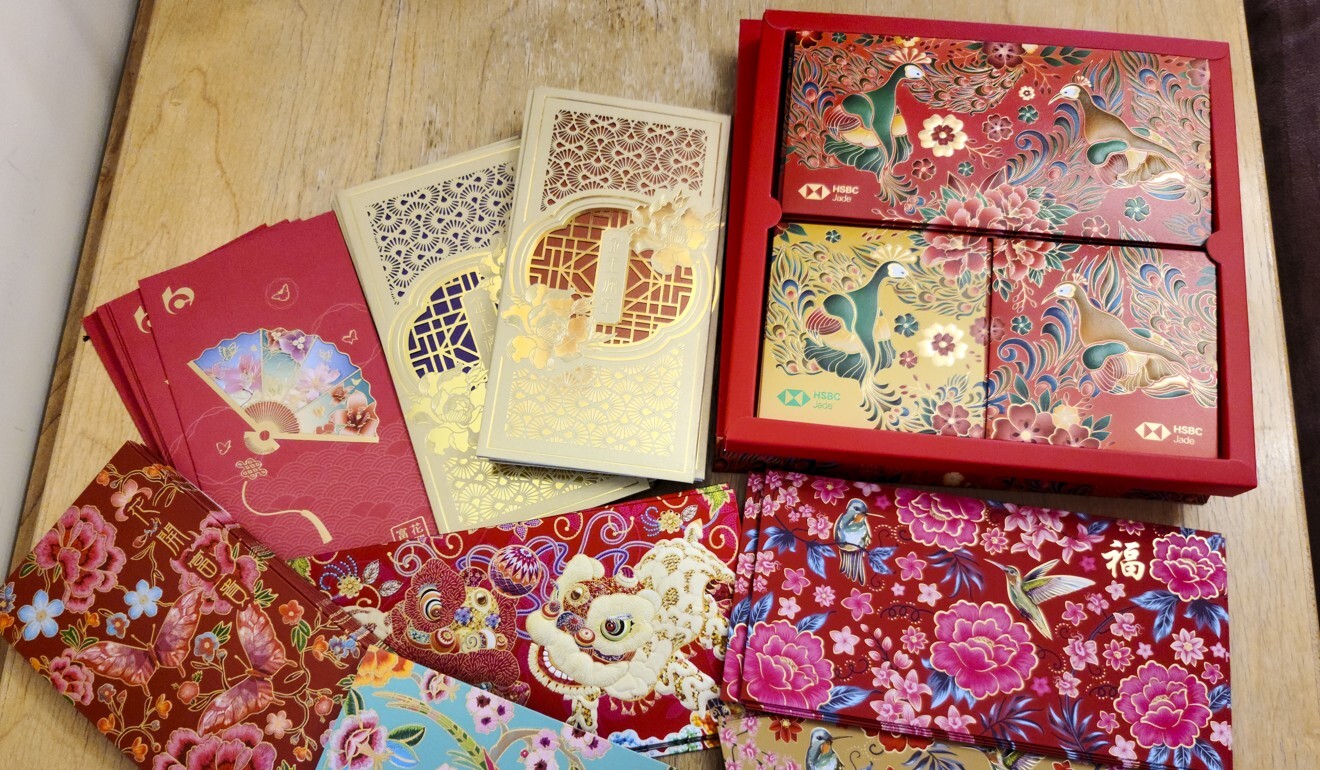
01:35
Festive Chinese red packets are more than just a tradition

All major Hong Kong banks have reported a decline in the number of customers approaching them for new banknotes for “lai see” purposes amid an increase in electronic transfers and signs of economic uncertainties.
HSBC, the city’s largest bank and one of its three currency-issuing lenders, said it had seen a drop of more than 20 per cent in notes exchanged year on year amid the Covid-19 pandemic. It was also promoting the use of its PayMe app for lai see with lucky draw prizes worth more than HK$3.8 million (US$490,000) in aggregate.
“In support of the Chinese tradition of lai see giving, HSBC is encouraging its customers to go digital this year using PayMe or the Faster Payment System (FPS). However, we continue to provide a notes exchange service and offer festive lai see envelopes for customers, especially those without access to digital channels,” said Maggie Ng, the bank’s head of wealth and personal banking in Hong Kong.
It is a Chinese tradition that married couples give lai see or blessing money to children, or to those not yet married, during the first seven days of Lunar New Year, which starts on Friday, February 12, this year. New banknotes are usually preferred for this. Companies will also give lai see to their staff on the first day they return to work after their holiday break.
Up until Lunar New Year in 2020, about 350 million banknotes worth almost HK$10 billion on average were exchanged within the two weeks before the holiday every year, data from Hong Kong Monetary Authority shows.

01:35
Festive Chinese red packets are more than just a tradition
Standard Chartered and Bank of China (Hong Kong), the city’s two other currency-issuing lenders, also reported a decline in notes being exchanged for lai see. A Standard Chartered spokesman said the number had fallen by a third. Others, such as Bank of East Asia and Hang Seng Bank also reported declines.
There is a major push to get people to give lai see electronically, as Hong Kong’s coronavirus outbreak has not yet been brought under control.
“As the epidemic situation continues to evolve, The Hong Kong Association of Banks encourages members of the public to use electronic lai see during the coming Lunar New Year,” the industry body of local banks said in a statement recently.

The city’s virtual lenders, such as Mox Bank and ZA Bank, which operate purely online operations without physical branches, are encouraging their customers to send e-lai see. Traditional banks such as Hang Seng Bank and BOCHK are also encouraging their customers to send lai see electronically, and are using lucky draws and prizes to entice users.
Moreover, all banks will also give lai see to their staff electronically when they return from their holidays.
Not everyone is going electronic, however, with some sticking to tradition. Bright Smart Securities, one of the largest retail stockbrokers in Hong Kong, will use physical lai see envelopes to pay HK$1,500 to each of its about 300 staff.
“Giving lai see to your staff is an important Chinese tradition. We want to keep the tradition, so we will give lai see physically – instead of using electronic methods – to our staff,” said Edmond Hui, Bright Smart’s chief executive. “The happiness of opening a lai see envelope cannot be replaced by receiving money electronically.”
The decline in bank customers exchanging notes for lai see could also be down to economic hardship brought on by the pandemic, which has pushed up unemployment and contributed to the worst decline in Hong Kong’s economy on record.
A survey of 1,044 residents conducted by the Hong Kong Research Association in the first week of February found that 37 per cent of the respondents planned to spend less on lai see this year than a year ago, the highest in 16 years. Another 46 per cent said they would give the same amount, with only 23 per cent planning on paying more. About 5 per cent had no comments on the matter.
The association attributed this result to the state of the city’s economy, as 53 per cent of respondents to the same survey said they did not expect a pay rise this year, also the highest in 16 years.
The survey also found that only 21 per cent of respondents would visit relatives because of the pandemic, while 33 per cent planned to send text messages and 24 per cent said they would call to give their blessings, This will also reduce the need to prepare physical lai see.
A spokeswoman for Standard Chartered said the bank believed the decline in notes being exchanged for lai see was down to people’s “reduced social activities” as well as the rise in electronic payments.